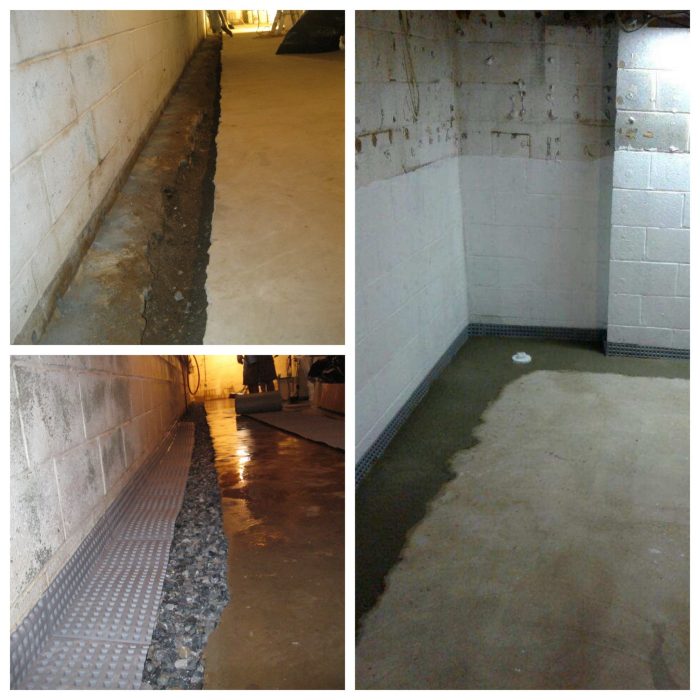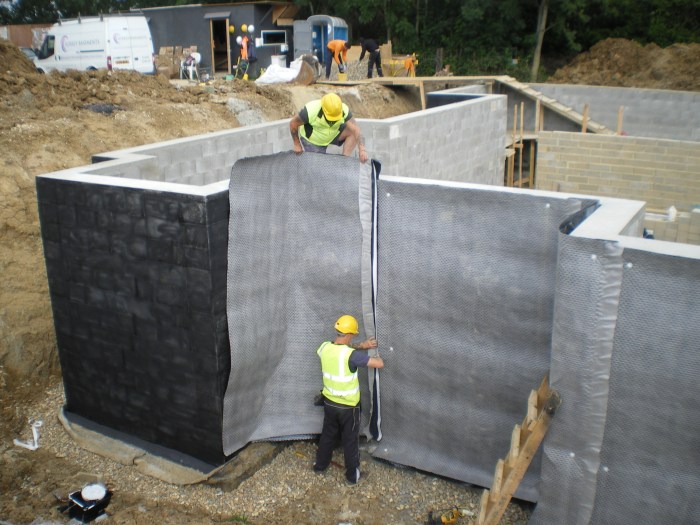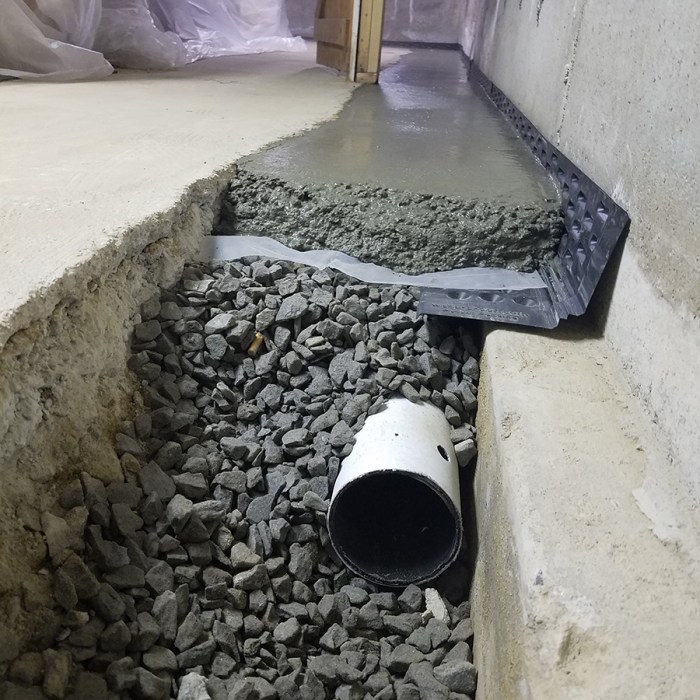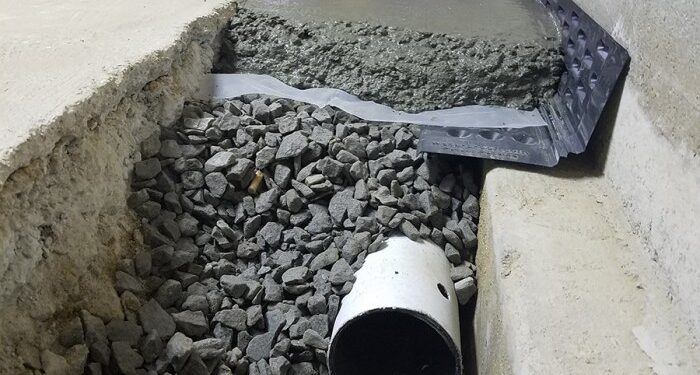Basement waterproofing companies play a vital role in safeguarding homes from water damage, ensuring a healthy living environment for residents. In this detailed guide, we delve into the importance of basement waterproofing, the various methods employed by these companies, signs indicating water damage, and essential tips for choosing the right professionals for the job.
Stay tuned to discover everything you need to know about basement waterproofing companies.
Importance of Basement Waterproofing
Basement waterproofing is essential for maintaining a healthy home environment and preventing potential damages caused by water leaks.
Water leaks in basements can lead to mold growth, structural damage, and deterioration of belongings stored in the basement. These issues not only affect the health of occupants but also decrease the overall quality and value of the property.
Preventing Mold Growth
- Water leaks create a damp environment ideal for mold growth, which can cause respiratory issues and allergies.
- Basement waterproofing helps to keep the basement dry and prevent mold from spreading.
Preserving Structural Integrity
- Excess moisture can weaken the foundation of the house, leading to cracks and structural instability.
- Waterproofing the basement prevents water from seeping into the foundation, preserving its integrity.
Protecting Belongings
- Water leaks can damage furniture, electronics, and other belongings stored in the basement.
- By keeping the basement dry, waterproofing safeguards valuable items from water damage.
Increasing Property Value
- A waterproofed basement adds value to the property by ensuring a strong foundation and a healthy living space.
- Potential buyers are more inclined to invest in a home with a waterproofed basement, knowing that it is well-maintained and free from water damage issues.
Types of Basement Waterproofing Methods

When it comes to basement waterproofing, there are several methods that companies use to ensure the space remains dry and protected. Each method has its own advantages and is suitable for different basement conditions.
Interior Sealants
Interior sealants are applied to the inside walls of the basement to prevent water from seeping through. These sealants create a barrier that helps keep the basement dry. While interior sealants can be effective for minor moisture issues, they may not be suitable for more severe water intrusion problems.
Exterior Waterproofing
Exterior waterproofing involves applying a waterproof coating or membrane to the outside walls of the basement to prevent water from penetrating the foundation. This method is more comprehensive and effective for preventing water damage, but it can be more costly compared to interior sealants.
Drainage Systems
Drainage systems, such as French drains or sump pumps, are installed to redirect water away from the foundation of the basement. These systems help to manage groundwater levels and prevent water from accumulating around the basement walls. Drainage systems are often recommended for basements with significant water seepage issues.Overall, the effectiveness of each waterproofing method depends on the severity of the water intrusion and the specific conditions of the basement.
Interior sealants may be suitable for minor moisture problems, while exterior waterproofing and drainage systems are more effective for preventing water damage in basements with more serious water issues.
Signs of Basement Water Damage
Water damage in the basement can lead to various issues if left untreated. It is crucial to be aware of the warning signs that indicate your basement may require waterproofing.
Mold Growth
Mold growth in the basement is a clear indicator of water intrusion. Mold thrives in damp, dark environments, and its presence can lead to health issues for you and your family
Musty Odor
A musty smell in the basement is often a sign of excess moisture. This odor is usually caused by mold or mildew growth, indicating a water leakage problem that needs to be addressed promptly.
Water Stains
Water stains on the walls or floors of the basement are a visible sign of water damage. These stains can indicate past or ongoing water intrusion, highlighting the need for waterproofing to prevent further damage.
Ignoring water damage in the basement can have serious consequences. It can weaken the foundation of your home, leading to structural issues and costly repairs in the future. Additionally, water damage can create a breeding ground for mold and mildew, which can impact indoor air quality and pose health risks.
Early detection of water damage is key to preventing these issues. By addressing water intrusion promptly, you can avoid extensive damage to your home and save money on repairs. Regularly inspecting your basement for signs of water damage and investing in waterproofing solutions can help protect your property and ensure a safe living environment for you and your family.
Hiring the Right Basement Waterproofing Company

When it comes to protecting your home from water damage, hiring the right basement waterproofing company is crucial. Here are some key factors to consider when selecting a basement waterproofing company:
Checklist of Factors to Consider:
- Experience: Look for a company with years of experience in basement waterproofing to ensure they have the expertise to handle your needs.
- Reputation: Research online reviews and ask for referrals to gauge the company's reputation and customer satisfaction levels.
- Warranties: Inquire about the warranties offered by the company to ensure you are protected in case of any issues after the waterproofing job is completed.
Step-by-Step Guide for Evaluating Quotes:
- Request quotes from multiple companies to compare pricing and services offered.
- Ensure that each quote includes a detailed breakdown of costs and services provided.
- Ask for clarification on any unclear or ambiguous items in the quotes.
- Consider not only the total cost but also the value and quality of the services being offered.
Tips for Ensuring Quality and Reliable Services:
- Ask for references from past customers to get an idea of the company's work quality and reliability.
- Verify that the company is licensed, insured, and bonded to protect yourself in case of any accidents or issues during the waterproofing process.
- Communicate clearly with the company about your expectations and ask any questions you may have before signing any contracts.
Concluding Remarks

As we conclude our exploration of basement waterproofing companies, it becomes evident that their services are indispensable for homeowners looking to protect their properties from the detrimental effects of water damage. By understanding the significance of basement waterproofing, recognizing signs of water damage, and selecting a reputable company, individuals can ensure a secure and durable living space for years to come.
Question Bank
How can basement waterproofing increase property value?
Basement waterproofing helps prevent water damage, mold growth, and structural issues, making the property more appealing to potential buyers and increasing its overall value.
What are the common signs that indicate a need for basement waterproofing?
Common signs include mold growth, musty odors, water stains on walls or floors, and efflorescence (white, powdery substance on walls).
What factors should be considered when selecting a basement waterproofing company?
Factors to consider include the company's experience, reputation, warranties offered, pricing, and the effectiveness of their waterproofing methods.










